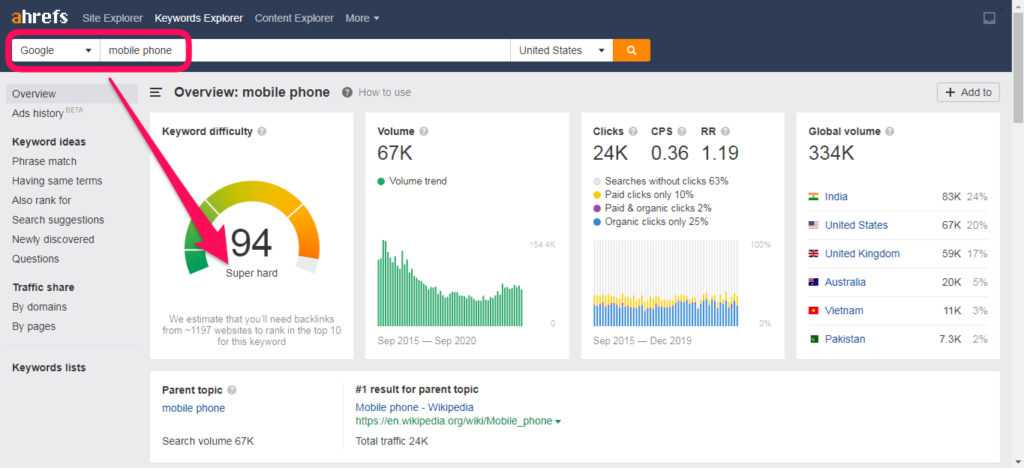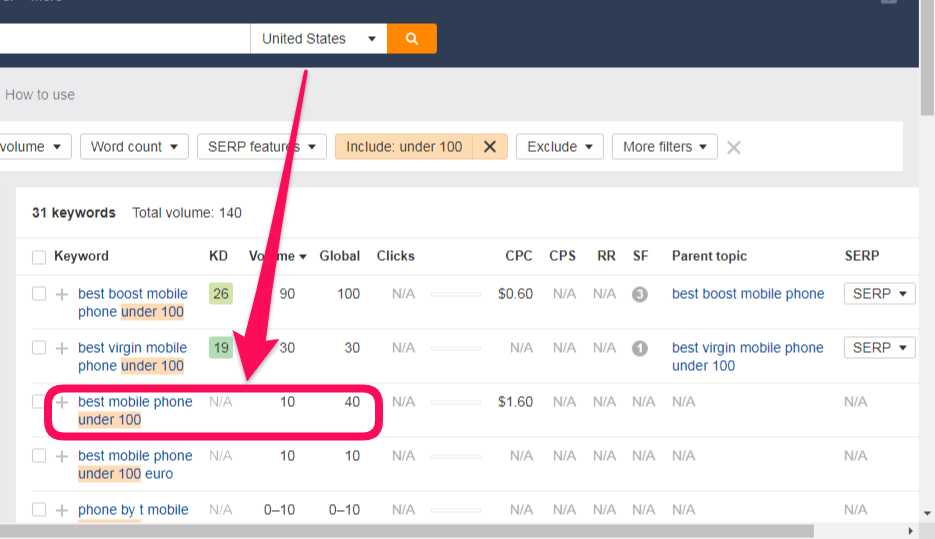 Shopify SEO: How To Optimize Your Shopify Store?
Shopify SEO: How To Optimize Your Shopify Store?
Looking for SEO Expert in Bangladesh?
Looking for SEO Expert in Bangladesh?

If you target the wrong keywords, you’ll waste a lot of time, energy and money. So, before you begin anything online, learn keyword research first.
Many webmasters think they already know the best keyword for their websites. If they haven’t done some research, they are usually wrong. There are several reasons for that:
You know your business much better than anybody else. You know the special terms that are used in your branch and you know what you should search for when you’re looking for products like yours.

Your customers don’t know as much as you. They don’t know your terminology, and they might use different keywords. For example, people might search for the keyword “outsourcing training” while your professional pride tells you that you should use the word “digital marketing course” If you don’t use the words that your customers use, your website won’t be found.
Have you considered the intention of the searcher? Just because a keyword is used very often on search engines, it doesn’t mean that you’ll get many customers. People who find your website through a special keyword might not be interested in purchasing.

It’s very important that you take some time to find the best keywords for your website. The time and efforts that you invest in finding the right keywords will pay back in no time.
It’s very important that you take some time to find the best keywords for your website. The time and efforts that you invest in finding the right keywords will pay back in no time.
When web surfers want to purchase something online, they go through three research phases. Searchers usually start with general keywords.
A. Keywords for browsing
A web surfer might be interested in a mobile phone The keyword that the web surfer might use in search engines could be:
People who use keywords for browsing are usually looking for information only. Keywords for browsing usually have a very high search volume. Getting a top 10 ranking for these general keywords is very difficult and nearly impossible.

It is unlikely that a web surfer who uses such a generic keyword will buy something.
B. Keywords for comparing
In the second research phase, web surfers narrow their selection because they now know what type of product they want. For example, the web surfer might have found out that he is interested in a mobile phone. The keywords of these web surfers are more specific:
People who use keywords for comparing are more ready to buy. Keywords for comparing often have much lower search volume than general keywords but they will lead to more sales, and it is much easier to get top 10 rankings for these keywords.
C. Keywords for buying
During the last research phase, web surfers know what they want to purchase. They are just looking for the website with the best offer. For that reason, these surfers use very specific keywords:
People who use keywords for buying are ready to buy. Unfortunately, these keywords won’t help you much if you offer competing products.
Single words cannot be promoted effectively. For example, it is not likely that someone looking for “free accounting software” is going to type just “software” into the search box.
One-word keywords are very competitive
Another disadvantage of one-word keywords is that they are very competitive. You will compete with millions of other pages for a search engine’s attention. It is unrealistic to think that a new website could rank number one on a popular phrase like “shoes” More established companies, who have been on the Internet for several years, will have the enormous advantage of high link popularity.
Multiple-word keywords are more likely to convert
People who chose multiple word keywords on search engines are either in the ‘compare’ or the ‘buying’ phase. They are more likely to purchase goods or services than those using fewer words.
Why multiple word keywords make your website more relevant
Search engines analyze all pages of your website and put them in context. Start with multiple word keywords and then extend your keyword list. If you’re selling shoes, you should optimize your web pages for keywords such as “inexpensive running shoes,” “[brand name] running shoes,” “blue running shoes” and similar keywords first

If your website has many rankings for these keywords, search engines will find out that your website is relevant to the ‘shoes’ topic. As soon as search engines consider your website relevant to this topic, it will be much easier to get high rankings for keywords such as “buy shoes” or even “shoes.”
A keyword that has many searches per month isn’t necessarily a good keyword. It also depends on what the searcher is looking for. If you are booking hotel rooms in Miami Beach, then people who enter “book miami beach hotel room” in Google’s search box are exactly the people you’re looking for.
But that’s the best case. Depending on the intention of the surfer, the searches might be different:
- “hotel”
- This person might be interested in hotels in general, in hotel jobs, an old TV series, etc.
- “miami beach”
- This person wants general information about the place.
- “miami beach hotel”
- This person is looking for different offerings.
- “miami beach hotel prices”
- This person is comparing prices.
- “book miami beach hotel room”
- This person is ready to buy.
The more general a search term is, the more difficult it is to get a sale.
Monthly search numbers can judge the relative popularity of a keyword. Use them with a grain of salt. If a keyword is related to your business, use it on one of your web pages. A highly relevant keyword with few searches often has a higher conversion rate than a general keyword with many searches.

If a keyword is so competitive that your website won’t get on the first result page, then this keyword won’t work for you. If you cannot make it on page one, then it makes little sense to use that keyword.
In addition, keywords with a high search volume are often very general keywords that do not drive targeted visitors to your site. A targeted keyword with a low search volume will deliver more sales to your website.
Final Words
If you want significant results, don’t waste your time on high-volume keywords that will deliver worthless traffic to your site. Focus on long-tail keywords that are much more likely to convert.
Okay, you got it! I hope you enjoyed this article and find it useful for your keyword research. If you would be interested in learning more about building and expanding a legitimate digital marketing business online, be sure to contact me through this page:
Do you have any question? Are you interested in working with me? Please send me a message.
contactI have helped More than 200 Companies all over the world to grow their online business through digital marketing. Working with me allows you to have the peace of mind of knowing that your website is getting results. I only deal with businesses that I’ m sure I can help.




